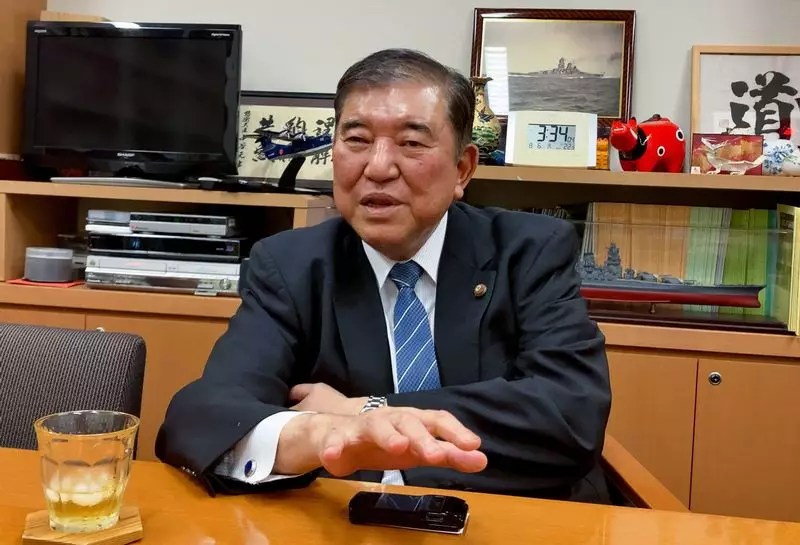Shigeru Ishiba, at the age of 67, is a former defense minister and a rare Christian in a country mainly dominated by Buddhism and Shinto. He stands out from the other candidates by advocating for a shift from nuclear power to renewable energy sources such as geothermal power. Ishiba supports the idea of legislation that would allow female emperors, a view that is not widely accepted among LDP lawmakers. Additionally, his economic strategy includes initiatives to boost wages to counter rising prices and potentially exempting certain goods from Japan’s 10% sales tax to support lower-income citizens. He has expressed support for the Bank of Japan’s policy of gradually increasing interest rates but remains cautious about the timing for new hikes. Ishiba has also proposed the establishment of a disaster management agency, improving conditions for military personnel, and ensuring Japan has an adequate defense force.
Shinjiro Koizumi, 43, is the youngest candidate in the election and the son of a former prime minister, carrying on a long-standing political legacy. He presents himself as a reformer seeking to restore public trust in the party amidst various scandals. Koizumi aims to accelerate economic growth by adapting to technological changes, particularly focusing on the rise of artificial intelligence. He advocates for opening up Japan’s regulated taxi market to ride-sharing services and providing financial support to pensioners and low-income households. Koizumi is in favor of higher wages at small and medium-sized companies, along with making it easier for firms to streamline their workforce. He supports legislation for women to retain their maiden names, allowing female emperors, and revising Japan’s war-renouncing constitution.
Sanae Takaichi, aged 63, represents the LDP’s right-wing faction and is Japan’s economic security minister. Known for her conservative views, Takaichi advocates for revising the pacifist constitution and opposes women retaining their maiden names. She emphasizes economic growth to enhance Japan’s global influence, using “strategic spending” to stimulate employment and consumer sentiment. Takaichi stirred controversy in the past by suggesting the government could revoke broadcasting licenses of politically biased media companies. As the leading female candidate, she is a regular visitor to the Yasukuni war shrine, a symbol of Japan’s controversial wartime past.
Taro Kono, aged 61, is a third-generation LDP lawmaker with experience as Japan’s foreign and defense minister. Although he had significant support among LDP members in a previous leadership election, Kono currently lags in opinion polls. He aims to reform labor markets to improve pay and conditions for part-time workers, emphasizing the need for retraining individuals for higher-paying jobs. Kono has proposed deploying nuclear-powered submarines to safeguard Japan’s maritime chokepoints and believes his connections will benefit Japan’s relations with Washington. Educated at Georgetown University, Kono is focused on modernizing Japan’s digital infrastructure, such as phasing out fax machines.
Toshimitsu Motegi, 68, the secretary-general of the LDP, is another candidate in the leadership election. With a background in serving as foreign minister and trade and economy minister, Motegi brings a wealth of experience to the table. However, the focus of public attention seems to be more on the leading contenders like Ishiba, Koizumi, Takaichi, and Kono. As the race unfolds, it will be interesting to see how Motegi’s platform and support evolve in comparison to the other candidates vying for the leadership position in Japan’s ruling party.
The upcoming leadership election for Japan’s ruling Liberal Democratic Party presents a diverse range of candidates with various policy agendas and visions for the country’s future. Each contender brings a unique perspective and set of priorities, reflecting the complex challenges and opportunities facing Japan in the coming years. The leader chosen in this election will not only shape the direction of the LDP but also have a significant impact on Japan’s domestic and international policies, making the outcome of this election crucial for the country’s political landscape.


Leave a Reply